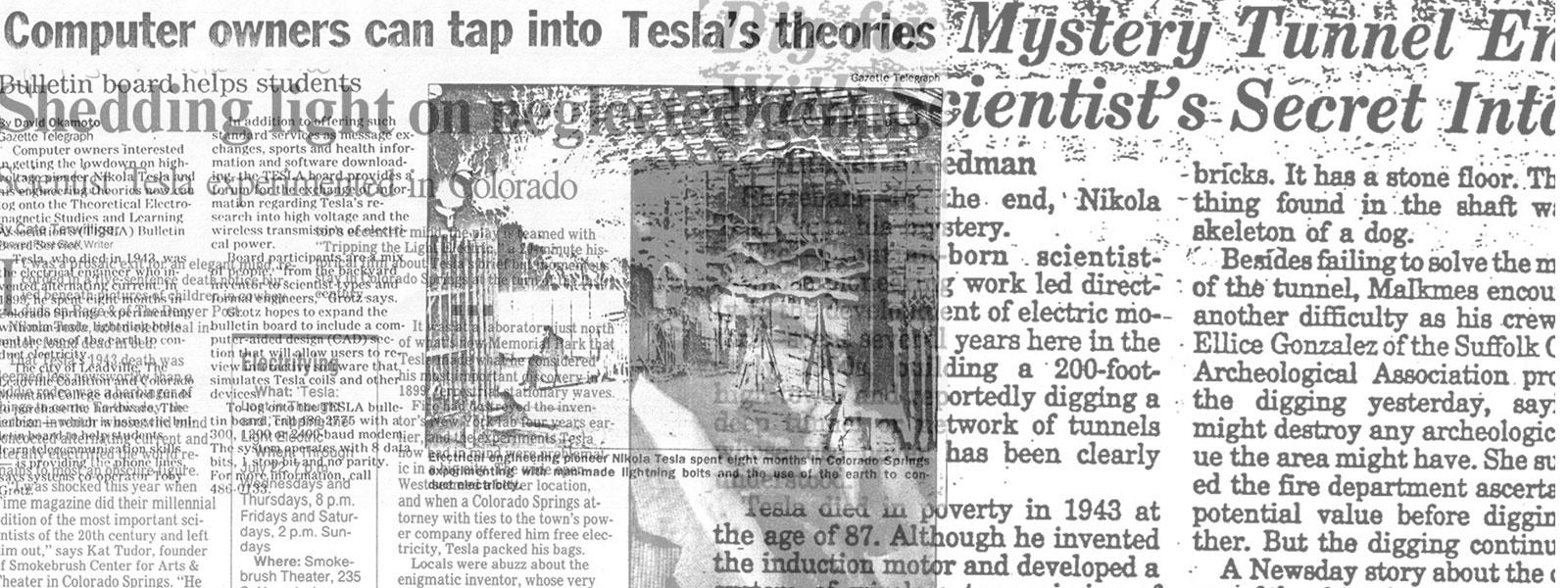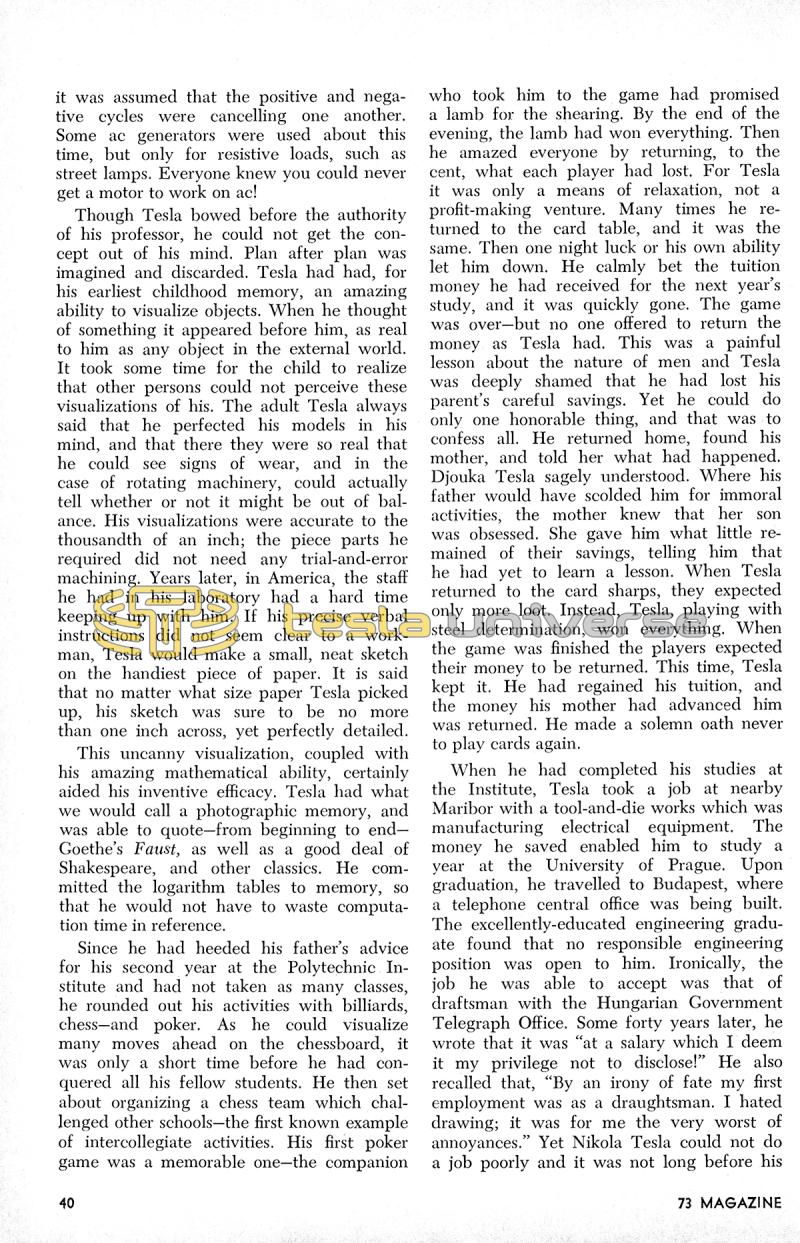
Nikola Tesla Articles
Nikola Tesla - Master of Electrical Energy Page 3
73 Magazine - February 1st, 1969
it was assumed that the positive and negative cycles were cancelling one another. Some ac generators were used about this time, but only for resistive loads, such as street lamps. Everyone knew you could never get a motor to work on ac!
Though Tesla bowed before the authority of his professor, he could not get the concept out of his mind. Plan after plan was imagined and discarded. Tesla had had, for his earliest childhood memory, an amazing ability to visualize objects. When he thought of something it appeared before him, as real to him as any object in the external world. It took some time for the child to realize that other persons could not perceive these visualizations of his. The adult Tesla always said that he perfected his models in his mind, and that there they were so real that he could see signs of wear, and in the case of rotating machinery, could actually tell whether or not it might be out of balance. His visualizations were accurate to the thousandth of an inch; the piece parts he required did not need any trial-and-error machining. Years later, in America, the staff he had in his laboratory had hard time keeping up with him. If his precise verbal instructions did not seem clear to a workman, Tesla would make a small, neat sketch on the handiest piece of paper. It is said that no matter what size paper Tesla picked up, his sketch was sure to be no more than one inch across, yet perfectly detailed.
This uncanny visualization, coupled with his amazing mathematical ability, certainly aided his inventive efficacy. Tesla had what we would call a photographic memory, and was able to quote - from beginning to end - Goethe's Faust, as well as a good deal of Shakespeare, and other classics. He committed the logarithm tables to memory, so that he would not have to waste computation time in reference.
Since he had heeded his father's advice for his second year at the Polytechnic Institute and had not taken as many classes, he rounded out his activities with billiards, chess - and poker. As he could visualize many moves ahead on the chessboard, it was only a short time before he had conquered all his fellow students. He then set about organizing a chess team which challenged other schools - the first known example of intercollegiate activities. His first poker game was a memorable one - the companion return the who took him to the game had promised a lamb for the shearing. By the end of the evening, the lamb had won everything. Then he amazed everyone by returning, to the cent, what each player had lost. For Tesla it was only a means of relaxation, not a profit-making venture. Many times he returned to the card table, and it was the same. Then one night luck or his own ability let him down. He calmly bet the tuition money he had received for the next year's The game study, and it was quickly gone was over-but no one offered to money as Tesla had. This was a painful lesson about the nature of men and Tesla was deeply shamed that he had lost his parent's careful savings. Yet he could do only one honorable thing, and that was to confess all. He returned home, found his mother, and told her what had happened. Djouka Tesla sagely understood. Where his father would have scolded him for immoral activities, the mother knew that her son was obsessed. She gave him what little remained of their savings, telling him that he had yet to learn a lesson. When Tesla returned to the card sharps, they expected only more loot. Instead, Tesla, playing with steel determination, won everything. When the game was finished the players expected their money to be returned. This time, Tesla kept it. He had regained his tuition, and the money his mother had advanced him was returned. He made a solemn oath never to play cards again.
When he had completed his studies at the Institute, Tesla took a job at nearby Maribor with a tool-and-die works which was manufacturing electrical equipment. The money he saved enabled him to study a year at the University of Prague. Upon graduation, he travelled to Budapest, where a telephone central office was being built. The excellently-educated engineering graduate found that no responsible engineering position was open to him. Ironically, the job he was able to accept was that of draftsman with the Hungarian Government Telegraph Office. Some forty years later, he wrote that it was "at a salary which I deem it my privilege not to disclose!" He also recalled that, "By an irony of fate my first employment was as a draughtsman. I hated drawing; it was for me the very worst of annoyances." Yet Nikola Tesla could not do a job poorly and it was not long before his
